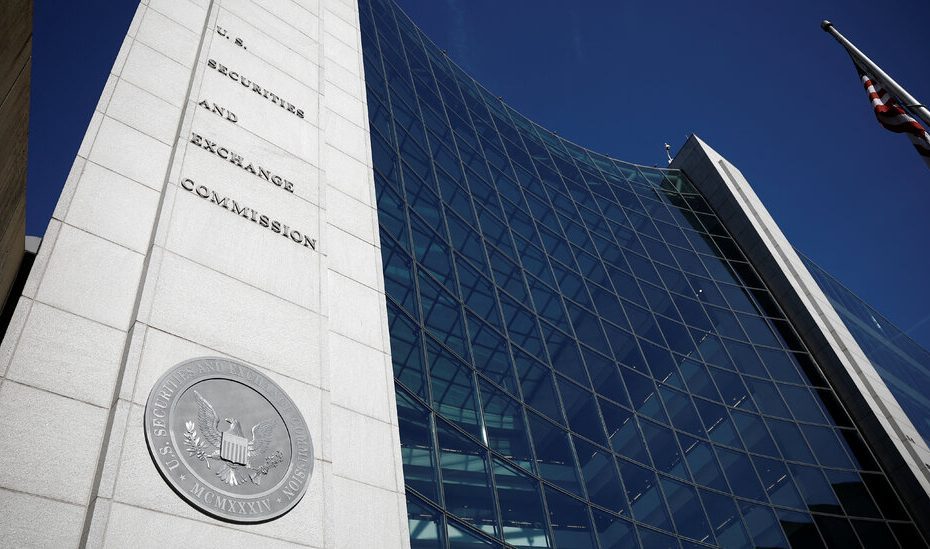President Trump has paused the enforcement of a federal law that he had long disputed: the Foreign Corrupt Practices Act, which forbids companies to buy foreign officials.
The law, in 1977, makes it illegal for companies that are active in the United States to pay foreign government officials to secure business deals. The command of Mr. Trump on Monday bars Federal Public Prosecutors to start new investigations or enforcement actions for 180 days. The Trump administration also said that it would revise existing studies to “restore the right limits” on the law.
The law, which is maintained by the Ministry of Justice and the Securities and Exchange Commission, has been heavily used over the past two decades to combat bribery, also in countries where it is a common business practice.
It is unclear how the executive command of Mr Trump, which pauses criminal investigations, will apply to the SEC, which often entails civil actions with the Ministry of Justice. Civil and criminal penalties can include millions of dollars in fines and prison time for individuals.
This is what about the anti-corruption law:
Why pauses Mr. Trump enforcement of the law?
When ordering the break, Mr. Trump argued that the American companies law brought to a disadvantage, which a criticism of the business community following the business community. The White House wrote on Monday in a fact sheet that American companies were damaged by “Extraction” because they “were forbidden to deal with practices that are common in international competitors, creating an uneven playing field”.
During his first term in the White House, Mr Trump asked the officials of the administration to help kill the law, an attempt that did not get a grip. But both Democrats and Republicans have criticized the enforcement of enforcement, said Mike Koehler, a scholar from the foreign corrupt practices that teach Texas A&M and other universities.
“Many of these substantive issues that have spoken in that executive order have been spoken by many people for several years,” said Mr Koehler. The Ministry of Justice in earlier administrations had “already tinkering with FCPA enforcement,” he added, and noted that cases were dropped on national grounds for safety.
Critics have also argued that by being more aggressive than other countries in the prosecution of foreign bribery cases, the United States increase the compliance costs of companies. The influential Bar Association in New York City doubted those costs in a 2011 report.
How has the anti-execution rule recently applied?
Both federal public prosecutors and rules of securities have collected large companies aggressively due to violations. Last year there were around 30 FCPA enforcement actions; In 2004 there were four.
A remarkable recent matter was an investigation into the involvement of Goldman Sachs in the scandal on the 1MDB -sovereign Capenses Fund of Malaysia. The investment bank was accused of paying bribes to Malaysian officials, so that the billions of dollars could manage bonds issued by the fund.
The investigation culminated in a Goldman daughter company guilty of a foreign bribery and paid more than $ 2.9 billion in fines and fines. A former Goldman banker was sentenced to 10 years in prison.
Last year, FCPA enforcement actions included a settlement of $ 220 million with SAP, a multinational software company, to resolve investigations into regulations to pay bribes to government officials in South Africa and Indonesia. Deere & Company also agreed to pay nearly $ 10 million to coordinate costs as a result of accusations of bribes paid by the subsidiary of Thailand.
What are the implications of pausing enforcement?
Although some ongoing studies can end as a result of Mr Trump's order, it is unclear whether things will be withdrawn. In November American prosecutors accused Gautam Adani, the Indian Tycoon, of bribing Indian officers and accused him of fraud. His company, the Adani Group, has called the allegations unfounded.
Pause enforcement can lead to an increase in corrupt activity, said Karen Woody, a law professor at Washington and Lee University that focuses on the legislation and financial regulations of securities. Mrs Woody said that they criticized “hard -handed persecution” under the Foreign Corrupt Practices Act, but that a Halt could enable companies to prevent persecution for bribery.
“For multinational companies it is a big problem that this will not be enforced,” said Mrs. Woody. “It's really a big sea change.”
But she added: “That does not mean that they are off the hook for foreign bribes or shady foreign business practices.” Other countries, including Great Britain and Germany, have provisions to corruption, she said.
Even before Mr Trump's executive command, his new attorney general, Pamela Bondi, indicated that her office would have a less extensive picture of foreign bribery cases. In a memo that outlines its priorities, Mrs. Bondi said that FCPA cases would focus on investigations with drug cartels or international crime organizations.
And if the Ministry of Justice is reflected in Washington, local American lawyers can possibly initiate matters, said Richard Donoghue, a partner at Pillsbury Winthrop Shaw Pittman and former Ministry of Justice. He added that there was probably a shift to persecution of people who paid bribes instead of companies.
“In the future, this creates more opportunities for companies to claim to the public prosecutors that they should not be held liable for the misconduct of their employees,” said Mr Donoghue.
Matthew Goldstein And Isabella Kwai contributed reporting.

